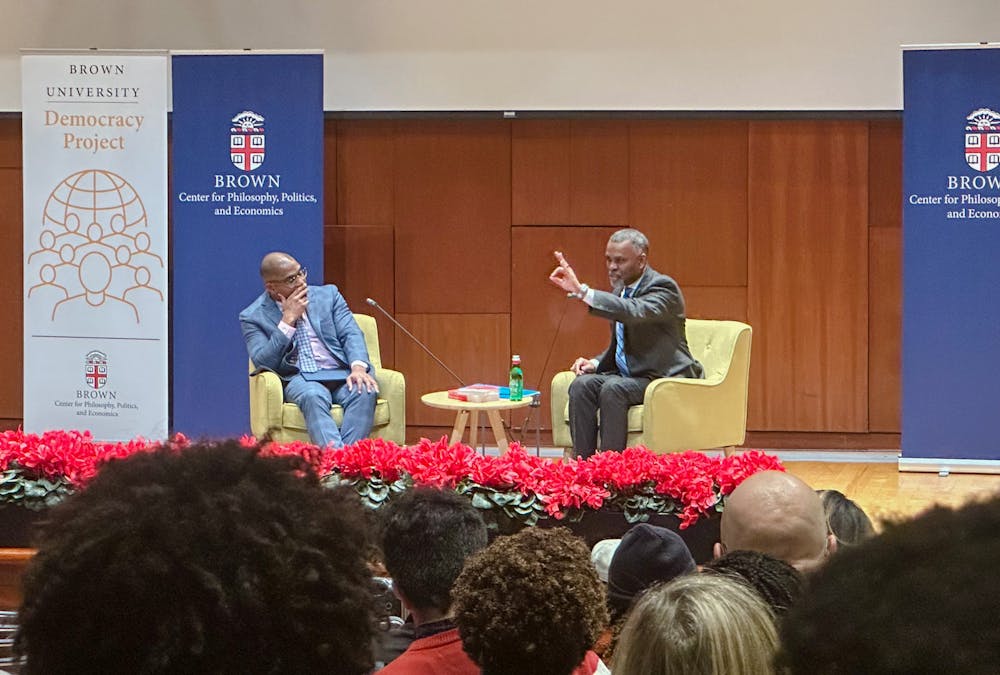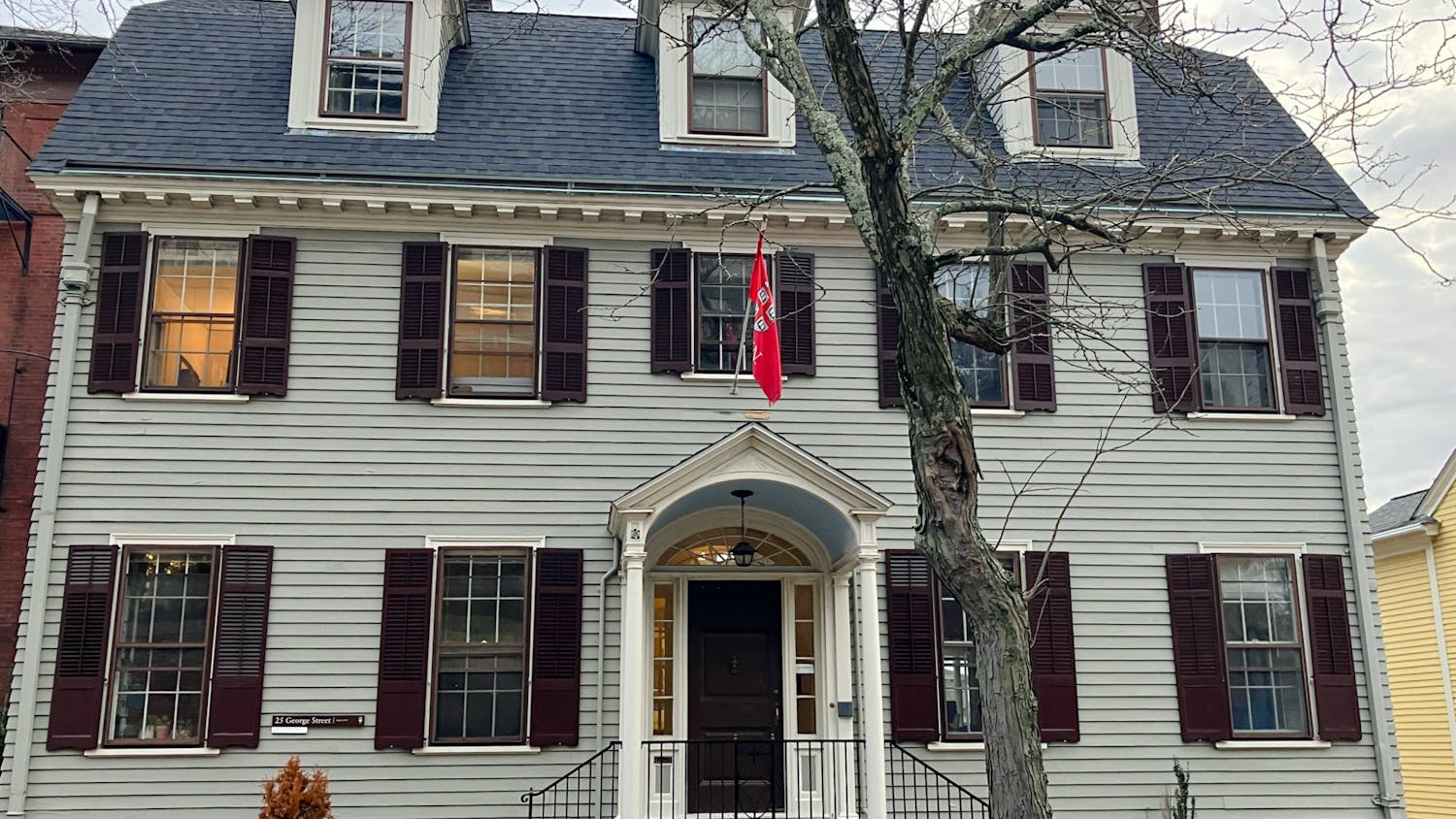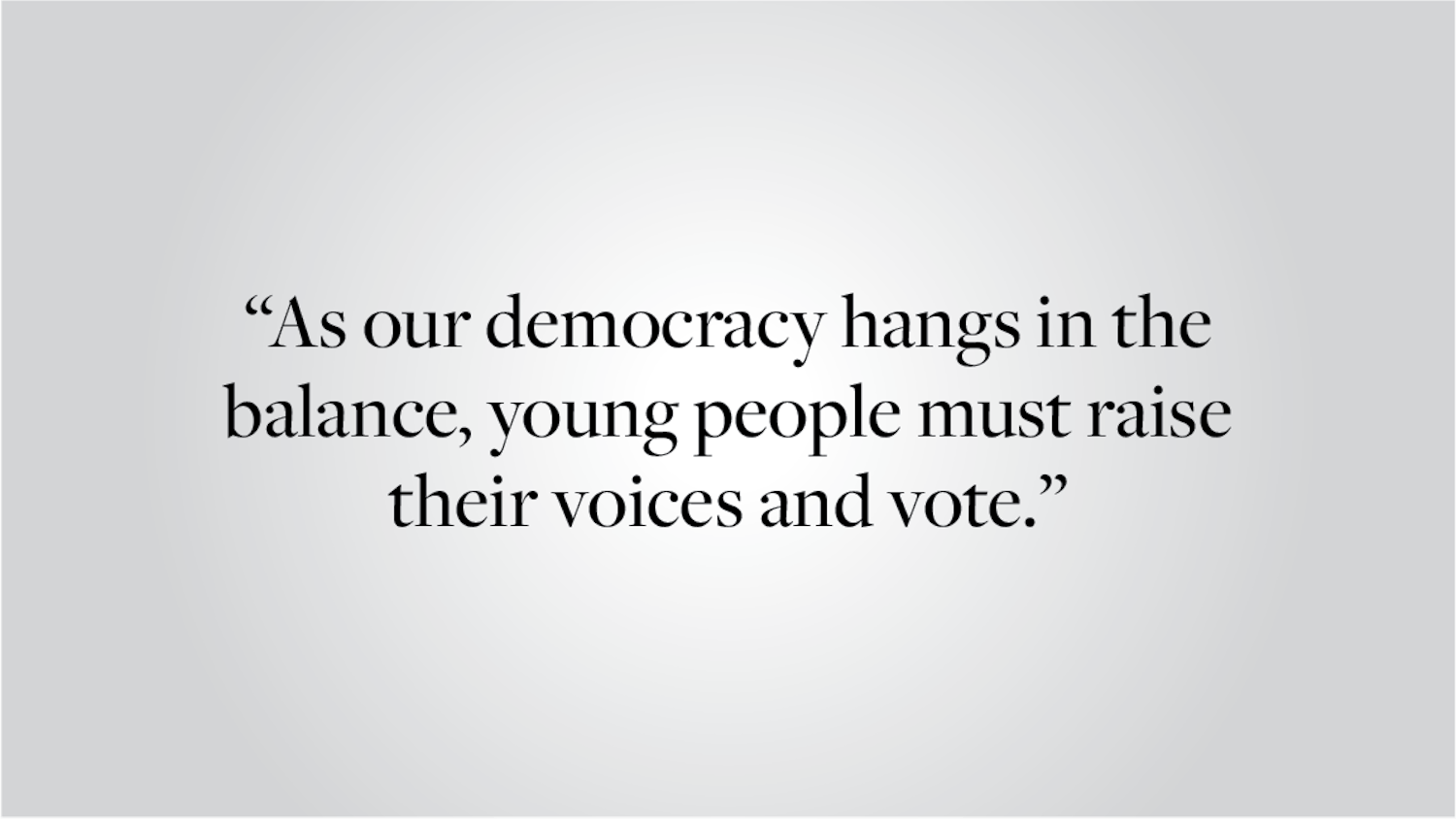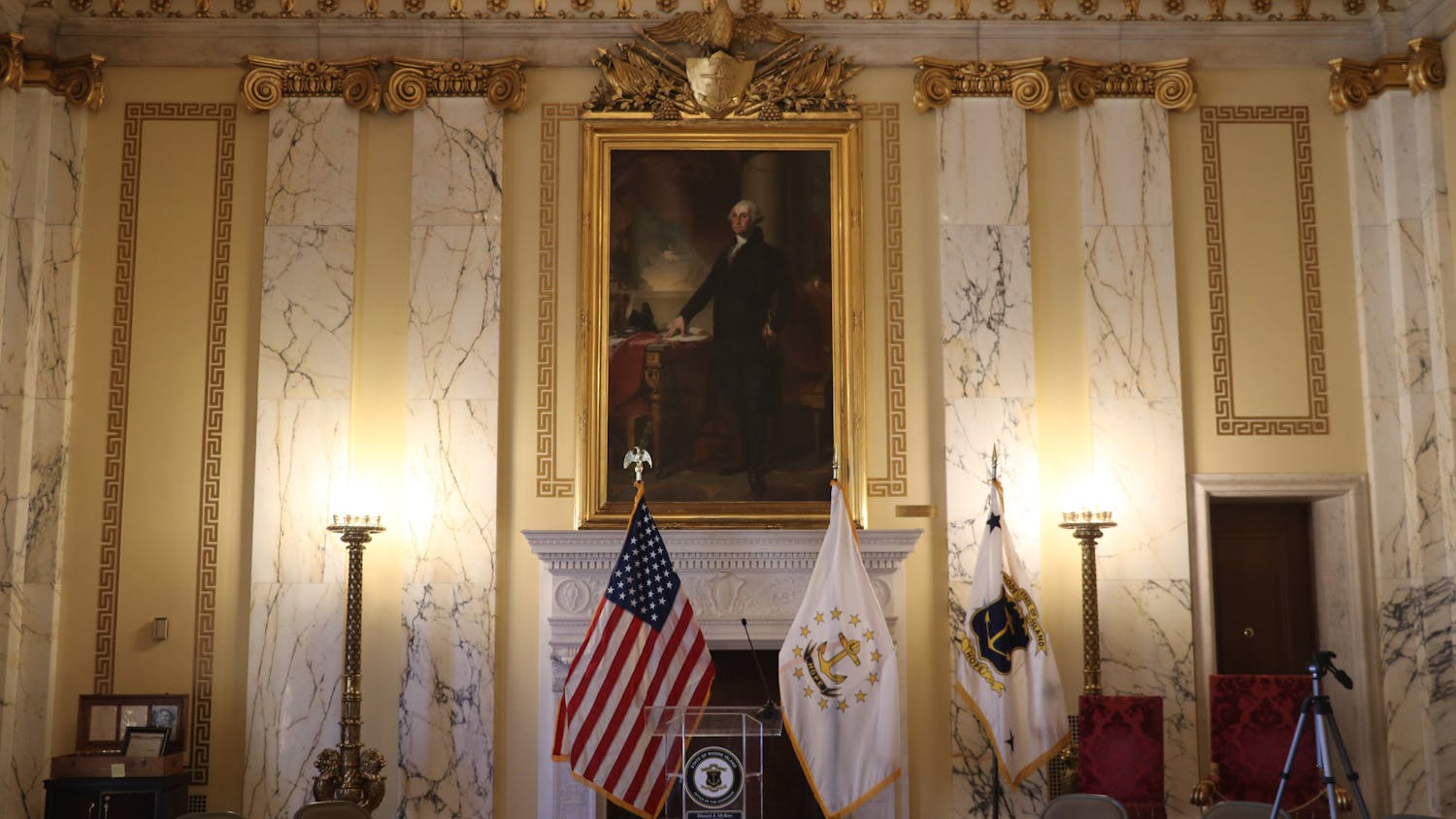Scholar and public intellectual Eddie Glaude P’18 spoke to a crowd of Brown students and community members Thursday, calling for a reimagining of American history at his “Race and Democracy: America is Always Changing, But America Never Changes” lecture.
The lecture kicked off the Democracy Project’s first public-facing program, “Being Again: Democracy in Crisis,” hosted by the University’s Center for Philosophy, Politics and Economics. The Democracy Project “promotes the study … of democratic values, norms, cultures, institutions and practices around the world, with a specific focus on North American, European and Latin American experiences with democracy,” according to the project website.
Glaude hopes to send a message that the United States “must accept the past that has made us who we are,” he said in an interview with The Herald.
During the lecture, Glaude said that the country is currently experiencing “a moment of profound crisis,” pointing to the dissonance between the country’s origin myths, which promote “American exceptionalism,” and the truth of its history.
As a result, today’s U.S. faces pressing issues such as “the great replacement theory, terror around demographic shifts (and) assaults on voting rights.”
“We have been lying to ourselves since the beginning about who we are,” Glaude told the audience. “What do we make of the fact that a lie repeatedly told becomes a uniquely American form of madness that haunts the nation?”
According to Glaude, Americans must “examine ourselves for who we really are,” and must do so without “our myths and legends about American exceptionalism.” These myths, he continued, “protect our innocence.”
Glaude said that the country must undergo a process of self-examination to move beyond a view of history “that desperately needs Black folks to be the sick men and women of our democracy.”
Glaude told The Herald his academic interests involve “the distribution of benefits” in the U.S., such as access to schooling opportunities and bank loans, and how this distribution can be uneven on the basis of race.
Lily Gardner ’26 said that she attended Glaude’s lecture “because I care about democracy and I think that the conversations we have about democracy are one-sided and esoteric and rely too much on constitutionality.”
Associate Professor of Political Science and Co-Director of the Democracy Project Melvin Rogers praised Glaude as an impactful scholar with a timely message.
Glaude’s impact “in American intellectual and cultural life extends far beyond the walls of academia (and) into your living room or wherever you find yourself watching MSNBC,” Rogers said.
He added that Glaude “has modeled for me thoughtfulness, intellectual rigor and a need to be a critical steward of the complicated religious and political traditions of the United States.”

Neil Mehta is the editor-in-chief and president of the Brown Daily Herald's 134th editorial board. They study public health and statistics at Brown. Outside the office, you can find Neil baking and playing Tetris.





